Efficient and sustainable waste management is essential to preserving a clean environment. In addition to preventing environmental deterioration, proper waste management techniques help preserve resources for future generations.
People can recycle, use the curbside collection services offered by governments, and use local drop-off locations for specific things like electronics or hazardous chemicals. These are some of the ways they can appropriately dispose of their trash.
Recycling efforts are aided by using designated bins and separating recyclables from ordinary waste, which lessens the burden on landfills.
Engaging in curbside collection initiatives provides effective waste management, and using designated drop-off locations ensures the safe disposal of goods that aren't appropriate for standard trash cans.
People fulfil their duty as stewards of the world and help to create a cleaner, healthier environment by actively participating in responsible waste management practices and realising the need for correct rubbish disposal.
If you are wondering how to get rid of trash, keep on reading and have all your questions answered.
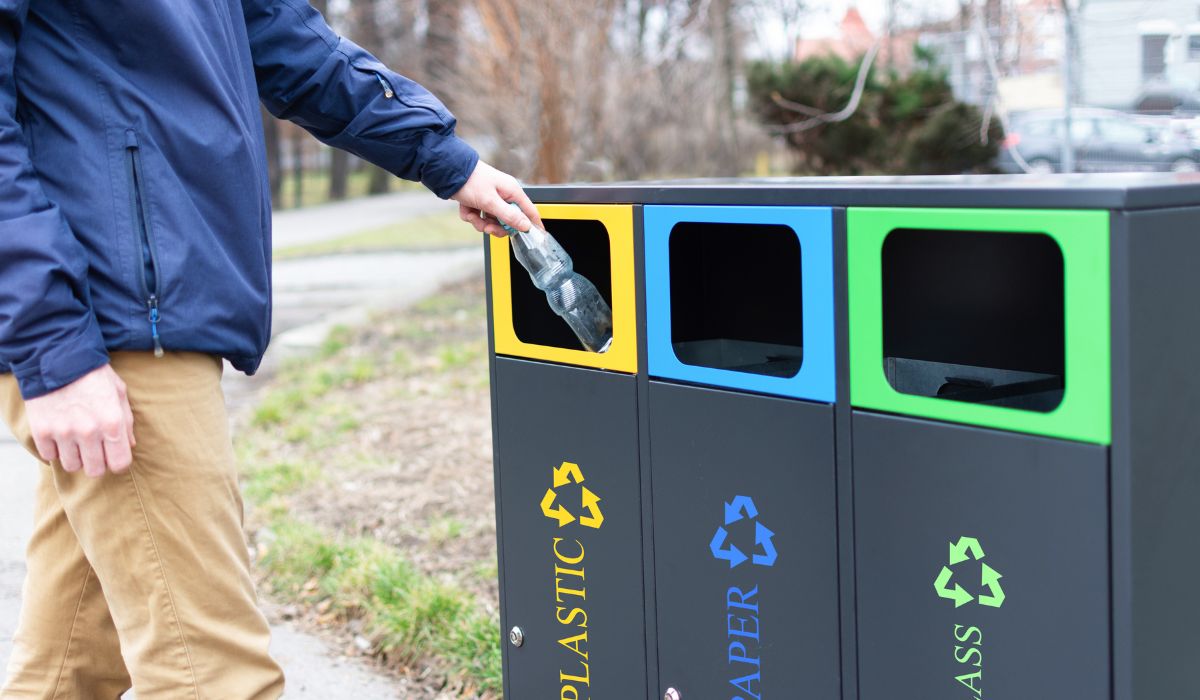
Effective segregation for effective trash disposal depends on the efficient separation of garbage into categories such as hazardous waste, non-hazardous waste, and recyclables.
This procedure reduces the adverse effects on the environment and greatly streamlines disposal procedures.
Reusing materials, or recycling, is a fundamental component of this segregation process that lessens the load on landfills and conserves resources.
Recyclables can be processed into new goods after being separated, which reduces the need to extract raw materials.
Furthermore, contamination is avoided, and the positive environmental impact of recycling can be achieved by segregated waste disposal.
Specialised handling is required for hazardous materials such as batteries, chemicals, and technological trash to prevent soil and water contamination and harm to human health.
Separated waste disposal lowers waste management costs while also facilitating effective recycling.
Municipalities can allocate resources more efficiently by directing particular waste streams to the right treatment facilities and classifying waste at the source.
This technique lessens the burden on disposal sites while increasing the overall effectiveness of waste management systems.
In general, prioritising proper trash disposal through efficient segregation promotes a more environmentally friendly method of waste management.
Reintroducing materials into the manufacturing cycle reduces environmental degradation, conserves resources, and advances a circular economy—highlighting the importance of careful trash sorting for a healthier, cleaner Earth.
Here are 5 ways in which you can get rid of trash:
Let us discover each way in detail and look at it in more detail.
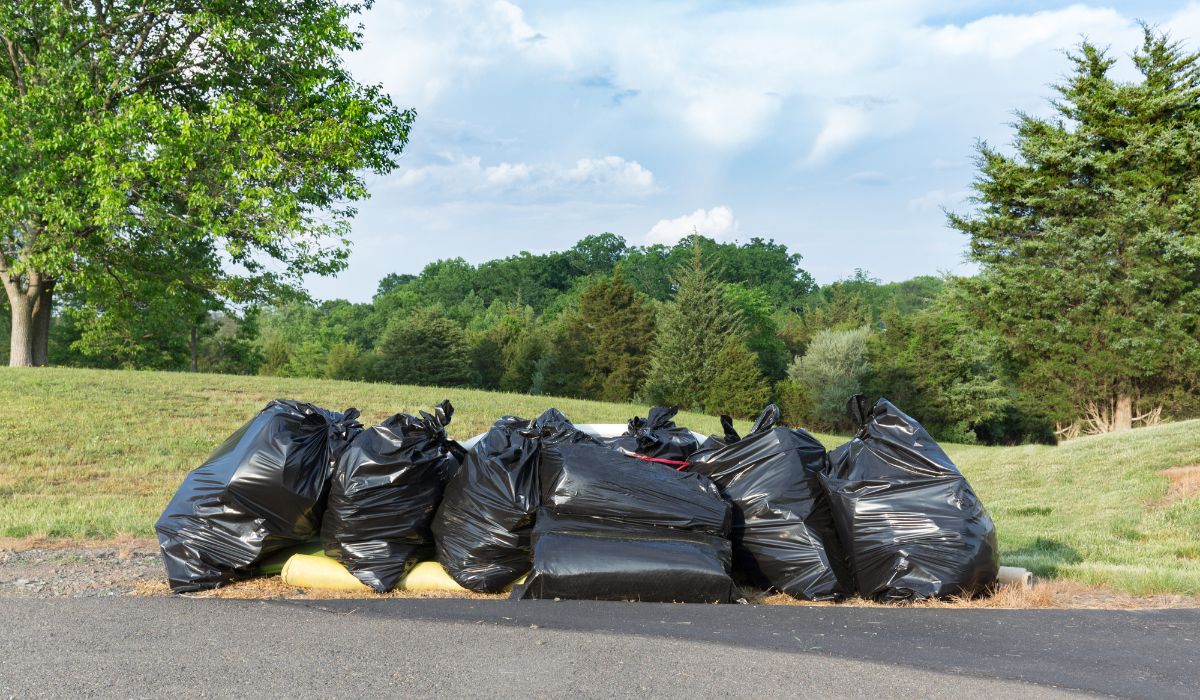
Residents can dispose of their waste more easily thanks to scheduled trash pickup, a crucial service local governments provide.
Residents usually follow a schedule where they put their recyclables and garbage in special bins at the curb for pickup on predetermined days.
Trash pickup schedules are regulated by city waste management municipalities and are based on zones or neighbourhoods.
Residents frequently receive separate containers for recyclables in addition to boxes or bags meant for normal trash. Making the most of the service requires that you comprehend the timing of these collections.
Residents should follow the rules their municipality sets to get the most out of curbside garbage collection.
This entails separating recyclables from ordinary waste and making sure that materials like paper, plastic, glass, and metal are disposed of properly in the appropriate bins or bags.
It's crucial to become aware of any special guidelines pertaining to the kinds of materials that can be picked up to make the most of curbside trash collection.
In order to ensure that waste collection staff can readily access the bins or bags without obstructing traffic or paths, efficient participation entails setting them by the curb the night before or on the designated collection day.
Municipalities may also provide special services, such as hazardous waste disposal or large item pickup, on certain days.
Residents can use these additional services through coordination with waste management departments or municipal authorities.
Residents who actively participate in curbside trash pickup help effectively manage city waste and maintain the cleanliness of their neighbourhoods.
Together, we can lessen the load on landfills, encourage recycling, and support a community-wide garbage disposal strategy that is more sustainable.
By being aware of the rules and keeping to the regular trash pickups, residents may contribute significantly to efficient municipal waste management systems.
Renting dumpsters for bulk trash is a great way to handle large amounts of rubbish, especially when doing big cleanouts or home repairs.
These sizable containers provide an easy-to-use, centralised solution for managing substantial debris.
A significant amount of waste materials, such as building debris, outdated furniture, appliances, and discarded goods, are frequently produced during home renovations.
By sensibly gathering and disposing of this debris, dumpster rental services help maintain the restoration site secure and orderly.

The pricing of these rentals varies based on the region, duration of rental, excess weight and even location.
Generally, it can cost anywhere between $180 to $500 per month also includes the pickup (varies weekly and bi weekly)
Similarly, renting a dumpster expedites disposal when homes are clearing away significant volumes of undesirable stuff during thorough cleanouts or downsizing attempts.
This option makes it easier to dispose of different goods properly and efficiently, from malfunctioning appliances to outdated possessions.
Companies that hire dumpsters usually provide a variety of container sizes to meet the demands of various projects. Selecting the right size for residential dumpster services is essential for convenient rental for trash removal.

Furthermore, many of these businesses offer variable rental terms, so homeowners may schedule their disposal according to their schedule and accommodate different project deadlines.
| Dumpster Container | Dimensions | Can Hold |
| 10 Yard Container | Approx. 4' H x 8' W x 10' L | 4 pickup loads |
| 20 Yard Container | Approx. 4.5' H x 8' W x 22' L | 8 pickup loads |
| 40 Yard Container | Approx. 8' H x 8' W x 22' L | 16 pickup loads |
Since these trash removal companies also offer recycling options, it lessens the impact of trash disposal on the environment by ensuring that materials are treated correctly and that recycling efforts are used where appropriate.
Handling massive amounts of rubbish during home renovations or thorough cleanouts is easier with the help of a simple dumpster rental for trash removal.
It is an excellent option for effectively managing large amounts of debris since it provides a centralised solution, encourages effective waste disposal, and supports ethical environmental practices.
Contributing to community recycling efforts has many advantages and is a major factor in the development of environmental responsibility, waste management strategies, and sustainable living practices.
Taking part in these programs encourages a group effort to minimise pollution, save resources, and reduce landfill waste.
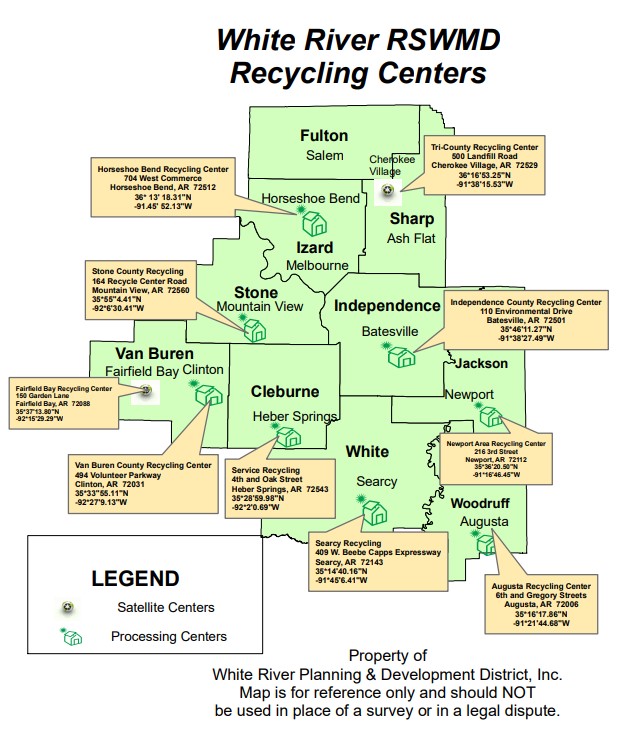
People can make a meaningful contribution by learning about their community's recycling initiatives, comprehending the materials that are acceptable, and classifying recyclables appropriately.
The recycling process is guaranteed to be effective if paper, plastics, glass, and metals are properly separated and placed in designated recycling bins.
Community recycling programs encourage resource conservation while reducing the amount of waste dumped in landfills.
Recycling materials saves energy and natural resources by lowering the need to extract raw materials, such as paper and plastic. Recycling also dramatically reduces manufacturing-related pollution, which helps to purify the air and water.
The impact of these programs is further increased by promoting sustainable living practices in the community and teaching people about the value of recycling.
People help to create a more sustainable future and a healthier planet for future generations by actively participating in recycling initiatives and promoting a culture of environmental responsibility.
Safe handling of hazardous materials and ensuring safe disposal of hazardous waste is essential so that the environmental impact of improper disposal is avoided.
Batteries, chemicals, electronics, and some home items are examples of hazardous materials that present serious risks if not handled and disposed of properly.
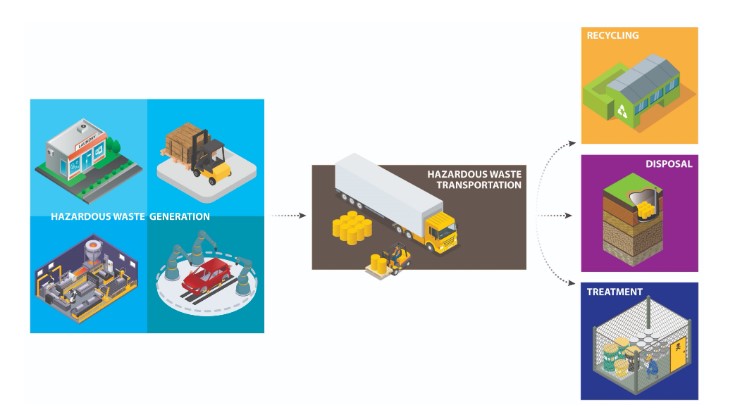
Hazardous waste materials must be identified by labels that indicate toxicity, flammability, corrosiveness, or reactivity in order for people to dispose of them safely.
The possible health and environmental risks associated with these compounds necessitate special handling and disposal techniques.
Hazardous waste disposal instructions, drop-off locations, and pickup days are frequently supplied by local waste management authorities.
It is imperative that these criteria be followed and that authorised facilities be used in order to stop hazardous waste from being improperly disposed of.
Improper disposal of hazardous waste can have serious repercussions. Groundwater contamination from chemicals seeping into the earth can endanger ecosystems and supplies of drinking water.
Certain materials, when burned, release toxic air pollutants that may have an adverse effect on the health of the surrounding communities.
People can greatly reduce the hazards to their health and the environment from hazardous waste by using approved collection sites and according to disposal requirements.
It's also critical to encourage responsible waste management practices in local communities and to educate oneself and others on the possible risks associated with inappropriate disposal.
Hazardous waste must be disposed of safely in order to protect the environment and public health.
Hazardous waste disposal must be handled responsibly and disposed of properly to preserve ecosystems, lessen environmental pollution, and ensure community safety.
This emphasises how important it is to handle hazardous waste disposal with extreme caution.
Communities frequently offer convenient drop-off locations or specialized disposal facilities for bulky or electrical objects that can't be disposed of securely in conventional trash cans.
These facilities provide sustainable waste disposal for certain objects in an ethical manner.
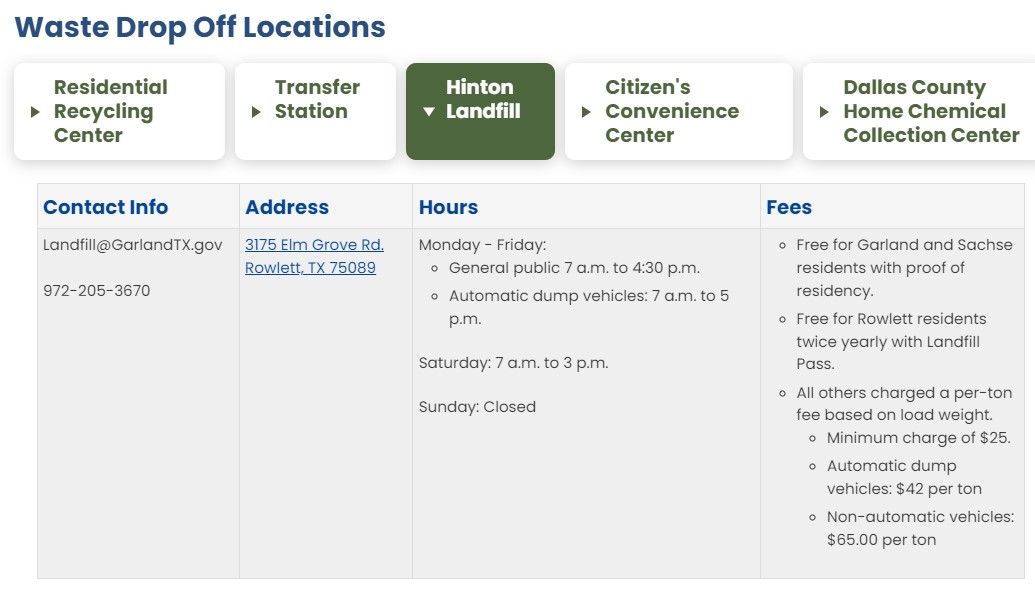
Batteries, outdated computers, televisions, and other electronics all contain potentially dangerous parts that, if not handled carefully, could damage the environment.
Residents can utilise local drop-off facilities for specialised trash to dispose of these goods securely for recycling centres for e-waste, which are established by many municipalities.
Large appliances, mattresses, and other bulky objects could not fit in regular garbage cans and can be difficult to dispose of.
To keep these goods out of landfills, many places offer collection locations or scheduled pickup services. This promotes recycling initiatives and proper disposal.
Certain materials require specific handling, such as paint, chemicals, or fluorescent bulbs.
Residents now have a way to get rid of these materials without hurting the environment, thanks to local disposal facilities that are set up to handle them securely.
By visiting municipal garbage management websites or getting in touch with local authorities, you can usually easily locate these drop-off locations or facilities.
Certain communities may plan recurring gatherings for particular goods, offering a practical and environmentally responsible way to get rid of them.
Through the use of these neighbourhood drop-off locations for specific waste, people contribute significantly to sustainable waste management.
By ensuring that bulk or hazardous materials are handled, recycled, or disposed of appropriately, this proactive strategy helps to maintain a healthier community and reduces its negative effects on the environment.
Educating the population about these facilities or drop-off locations aids in the promotion of appropriate trash disposal techniques.
By encouraging friends and neighbours to make use of these services, we can all help to reduce the amount of waste that ends up in landfills and support recycling programs, which will make the environment cleaner and more sustainable for everyone.
Final thoughts on how to get rid of trash and proper disposal are that implementing ethical garbage disposal methods is essential for environmental stewardship and creating a healthier future.
Sorting recyclables, using neighborhood drop-off locations for specialty products, and taking advantage of municipal curbside pickup programs are all essential components of proper trash management.
People may help recycle, conserve resources, and lessen landfill waste by separating recyclables, including paper, plastics, glass, and metals, and using designated bins.
Additionally, making use of nearby drop-off locations for large, dangerous, or electronic objects guarantees that they are disposed of securely and reduces environmental impact.
Following the rules and timetables established by curbside trash collection programs encourage effective waste management, lessens the load on landfills, and supports recycling efforts in our local communities.
Developing ethical waste disposal techniques is a group endeavor towards environmental stewardship as well as a personal obligation. We can avoid pollution, save resources for future generations, and preserve ecosystems by properly managing our garbage.
In wrapping up the guide to responsible trash disposal, let's make a commitment to these easy yet effective steps. We can all significantly impact garbage disposal by adopting appropriate practices.
Let's take the initiative to protect the environment by handling our waste sensibly. No matter how tiny, our combined efforts go towards making the world a greener, healthier place for everyone.